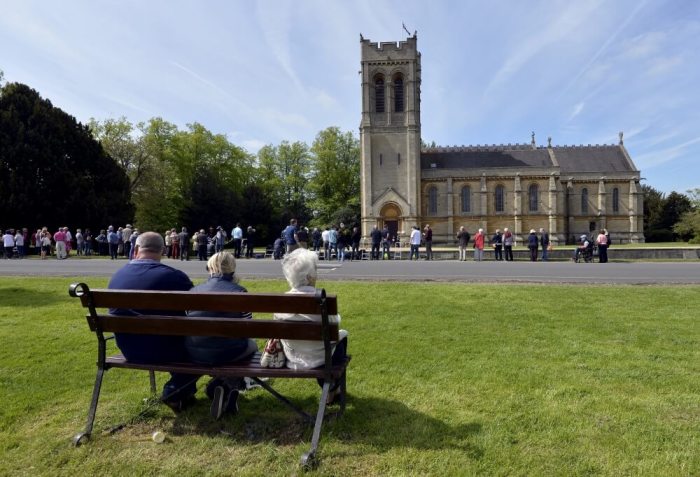Church of England Synod Urges UK Ban on 'Gay Conversion Therapy'

Leaders of the Church of England want to urge the government to ban the practice of conversion therapy, which seeks to help those who want to change their same-sex attraction. They called the therapy unethical and potentially harmful.
"Conversion therapy is harmful, dangerous and just doesn't work," said Jayne Ozanne, who represents laity in the Diocese of Oxford, while moving the motion at the Church of England's General Synod during its ongoing annual July sessions in York. "People may be able to alter their behaviour but they can never alter their innate desire."
The denomination's national assembly voted to endorse a Memorandum of Understanding on Conversion Therapy signed by The Royal College of Psychiatrists and others condemning the practice.
"This debate is actually quite simple. Do we trust our medical health professions and academics (including many sincere godly Christians) to know what they are talking about?" Ozanne asked. "Should we listen to the voices of those we and others have unwittingly harmed? Should we learn from our mistakes, and seek to protect future generations from the sort of damage that was done to me and so many others?"
Archbishop of York, Dr. John Sentamu, said, "The sooner the practice of so-called conversion therapy is banned, I can sleep at night."
The Bishop of Liverpool, Paul Bayes, said, "We must distinguish between an ascetic and a therapeutic approach. In the Church we are certainly called to help one another to conform their lives to Jesus Christ and to live lives of holiness, but we do not need to engage people in healing therapy if they are not sick."
Some synod members expressed concern that the motion would limit the church's ability to offer pastoral care and prayer for people struggling with issues of sexual desire and orientation, according to The Guardian.
In the United States, 10 states have banned the therapy for minors.
Proponents of the therapy, also called Sexual Orientation Change Efforts, or SOCE, argue they are being misrepresented, patients and doctors should make these decisions, and SOCE has been proven to help people.
In a previous statement to The Christian Post, Christopher Doyle, an ex-gay therapist who uses SOCE with his patients, said, "No child should be denied the right to get the therapy that fits their values, and no parent or family should be told they must accept that their child is gay or transgender if they believe their son or daughter has underlying trauma that may be causing these unwanted feelings."
A background paper accompanying the Church of England motion reads, "The practice of conversion therapy has no place in the modern world. It is unethical and harmful and not supported by evidence. Conversion Therapy is the term for therapy that assumes certain sexual orientations or gender identities are inferior to others, and seeks to change or suppress them on that basis. Sexual orientations and gender identities are not mental health disorders, although exclusion, stigma and prejudice may precipitate mental health issues for any person subjected to these abuses. Anyone accessing therapeutic help should be able to do so without fear of judgement or the threat of being pressured to change a fundamental aspect of who they are."
A report, based on an analysis of the British Social Attitudes Survey and the European Social Survey and published in May, revealed that Anglicanism in Britain is beginning to see an upward trend due to a resurgence in patriotism and pride in Christianity. It said the proportion of those who say they are Church of England worshipers has risen from a low of 16.3 percent in 2009 to 17.1 percent in 2015.
However, an extensive survey in England, also published in May, revealed that only a minority of young people believe Jesus Christ was both a real person who lived on Earth and God in human form.
Only 54 percent of those interviewed described Jesus as a "real person who actually lived," with 27 percent calling Him a "mythical or fictional character," and 19 percent saying they don't know. Of those who believe Jesus is real, only 30 percent said He was "God in human form." The most popular selection was that He was a "prophet/religious leader but not God," at 40 percent, while another 18 percent called Him a "normal human being."
Most people associated positive words toward Jesus, however. Christ was most often described as "peaceful," "spiritual," "loving," "wise," and "leader," by the total sample.





























